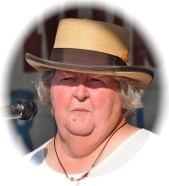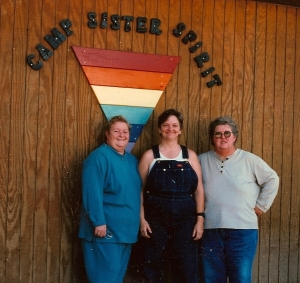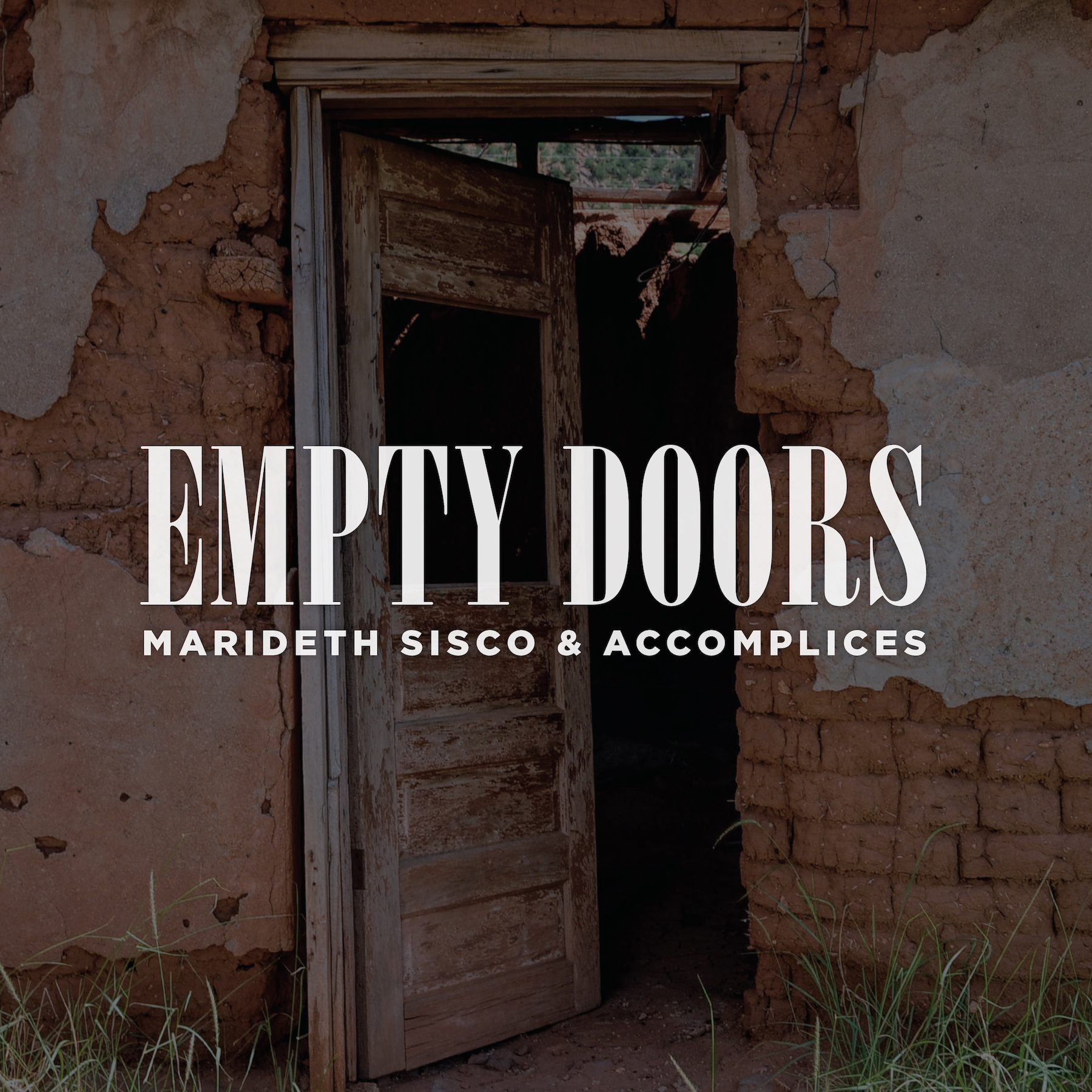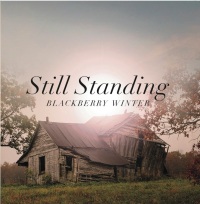 Recently I was asked by the feminist journal “Sinister Wisdom” to write a small piece on what had become of the women’s community that called itself Camp Sister Spirit. I had known the founders for years, and had some knowledge of what happened. Here was my response:
Recently I was asked by the feminist journal “Sinister Wisdom” to write a small piece on what had become of the women’s community that called itself Camp Sister Spirit. I had known the founders for years, and had some knowledge of what happened. Here was my response:
I first came to Sister Spirit, just east of Hattiesburg, Mississippi in 1995, at the end of a research trip I’d taken farther south. But I’d met the Hensons way earlier when they rolled into the Midwest Wimmin’s Festival calling themselves “The Dixie Dykes”. They’d brought their little crafts booth and were fundraising, they said, to try to put together a feminist bookstore in Gulfport, Mississippi. They were an energetic, round-cheeked pair with an almost evangelical fervor for their work – to educate and bring the ideals of feminism to the women of the south.
By the time we saw them the next year, they’d gotten involved with Robin Tyler, who was then promoting the Southern Women’s Music and Comedy Festival in north Georgia, and who was encouraging their efforts. They’d also tangled with the folks at RhythmFest, another southern festival, who evidently saw their efforts as direct competition and had attempted some half-hearted ‘This town ain’t big enough …’ swaggering. But the Hensons, who said the south was big enough for everybody, explained they had different aims. The other festivals were run as businesses and out to make a profit. Sister Spirit, they explained, aimed to become a feminist adult education center.They wanted, they said, to change women’s lives.They held festivals for some years in various locations and finally, with the help of financing from some women of means in the New Orleans area, managed to buy a scrubby little run-down farm in Jones County where the illiteracy rate among women was somewhere above 30% and women, white or black, were at the bottom of the heap.
They had their share of friction among their own when Wanda, blue collar daughter of Pentecostals, tangled with white collar urban “lipstick” lesbians who couldn’t quite see her as being in the same pool. She was uppity, obstinate and opinionated – and absolutely driven to bring her suffering, closeted sisters up out of the pit. With equally loving and hot-tempered agitator Brenda by her side, she couldn’t be stopped.
Then one of the camp’s newsletters, which credited the success of the fledgling venture to “good lesbian energy” got into the hands of a nearby Baptist Church, and the fight was on. Gunshots in the night. Dead pets. Nails in the driveway, and Brenda’s car run off the rural road. A granddaughter coming up to visit prompted a rumor that these evil Lesbians were now stealing area children. It was ugly. They put out a call for reinforcements, and women from all walks and all parts of the country came. But in many cases, the ones who responded were no more equipped for life under siege than those already there. Wanda, who was on disability after a fall at work had injured her back and hip, had to have a stern talk with her son, Arthur, telling him, “if they come for us you’ll have to help me, because I can’t run.” When I heard of the situation, I begged them to pull out, to come up to Missouri and lay low until things settled down. It wasn’t Wanda’s style. Instead, she called Oprah and dared the other side to meet her there. They did. That too, was ugly. The best line of the day was when the Baptist minister tried to explain to Oprah that she just didn’t understand the ways of Mississippians. “I was born in Mississippi,” Oprah returned in a cold voice. “I understand it just fine.”
But time went on, and just what the Baptists feared happened. Over time, people got to know them, and realized they were just people. And the perception in the community of Camp Sister Spirit began to change. But by then Wanda was exhausted and in debt, and Brenda had cancer. They stepped aside and let others carry on. And those others passed it to others, with each generation of leadership less able, and those gone before still trying to heal. There’s no question they made their place in Ovett, Mississippi. The proof of that came when Hurricane Katrina hit the poverty-stricken community. Women, mostly lesbians from all across the country who had visited there in earlier times, loaded their trucks with chainsaws, non-perishable foods and dollars, and came to help. A few days later, a note appeared on the door of the local firehouse. “We’ve been up too many nights and we’ve got to get some sleep. If you need anything, go on down to the camp. The girls will take care of you.”
Folks at the general store now refer to that original outraged Baptist as “that little Hitler.” They’re over it.
But the land is now idle, the buildings empty. Brenda passed in 2008. Wanda opened her little medical clinic down on the coast and she treats victims of the Deepwater Horizon spill. It might be considered a failure, overall. Except everyone who set foot on that little patch of earth in the Mississippi pine belt was changed by it, challenged to show their best, and worst, and depths of character and courage they would not have imagined themselves to possess. I don’t think any of them saw themselves as having engaged in any vital part of the history of Civil Rights. But the women of color over in Hattiesburg, I’ll wager, would beg to differ. We saw it in their eyes in the checkout line in the grocery stores, where we got accustomed to people who had read the local paper and its stories of “that business over in Ovett” We expected they would move away from us and steer their children clear so nothing of our difference would rub off. The clerks, on the other hand, would break into wide smiles and whisper softly and so their mouths moved hardly at all, and say “Come on, girl, come on up, honey, we’re with you.” What we took away from that experience humbled us. We are none of us the same. It is too soon to know whether that small encampment in the Pine Belt will just fade quietly into the history of Jones County or will become known as the “Stonewall of the South.” What we know is that we who were there were changed fundamentally.
Marideth Sisco
links of interest;
Phyllis Chesler speaks out
About Camp Sister Spirit, YouTube video
A brief history


 Listen to or read the narrative of the latest installment of the classic Ozarks commentary by beloved Ozarks singer and storyteller Marideth Sisco, host of the long-running series, These Ozarks Hills.
Listen to or read the narrative of the latest installment of the classic Ozarks commentary by beloved Ozarks singer and storyteller Marideth Sisco, host of the long-running series, These Ozarks Hills.











I am sorry to learn that the Camp is no longer operating but it certainly made an important impact upon south Mississippi in its day. I remain very satisfied with my work defending it.
Camp Sister Spirit changed my life. I wish there was something I could do to make it viable again.
Camp Sister spirit changed many lives to include mine. I found my voice there after growing up in an abusive home and entering equally abusive relationships. These womyn and the camp saved my life and inspired me to help other womyn. Ovett Mississippi is a herstoric landmark for many Southern Womyn.
Wanda Henson is my cousin and I wasn’t aware of several of these facts. I got a chuckle hearing Brenda referred to as “hot tempered” because I never saw anything but her kind side. They helped anyone in trouble..male or female. My uncle, Wanda’s father, once told my mother he didn’t understand the life style but he was mighty proud of the work she did for people in need. That was years ago and I’m sure he has a better understanding now.
Wanda is now my doctor at Henson Medical Clinic and she’s straight shootin’ as the saying goes. She treats me just like any of her other patients meaning I receive no special favors.
I’m proud of the person she has become over the years and I wish her many more but most of all I wish her peace..she deserves it.
Marideth, you made me cry. You couldn’t have said it all any better. Thank you for being such a great friend to my sister, Wanda and to my sister-in-law, Brenda. I so want Camp Sister Spirit to live on. They worked so hard to make it what it was. It truly was, even through all that hate, a peaceful place full of love.
I am new transplant to Mississippi. I am young queer professional woman who moved to this state for an exciting job opportunity in the arts. I’m originally from Louisiana. Ever since I moved here, I have been wanting to explore the state’s LGBTQ history by conducting a series of oral histories and possibly turning those into a podcast. (I’m a folklorist by trade.) In my searches about MS herstory and queer history, I have come across Camp Sister Spirit several times. I am interested in talking with Wanda or any of the women who were involved in/attended the Camp. Does anyone know how I could get in touch with Wanda and/or others? It’s a shot in the dark, but I’d thought I’d ask.
I’m so sorry I missed your comment when it was posted. Are you still interested in talking to Wanda?
Yes I would be very interested in speaking with Wanda. Thank you for responding. If you don’t mind, could you contact me at my email address: mariazeringue@gmail.com? thanks!!
I visited Camp Sister Spirit to ring in 1995 and to create a documentary to complete my MFA. It was featured in Chicago’s 1995 Gay and Lesbian film festival. It was shot primarily on 3/4 inch videotape. Unfortunately, I no longer have a copy, but I’m thinking about checking in with Columbia College in Chicago were I earned my MFA and see if they have a copy on file as it was my masters thesis and I believe they maintain a morgue. It was entitled, “Behind the Magnolia Curtain at Camp Sister Spirit.”
Thank you for replying Sharon. I appreciate it. I would love to do a piece on Camp Sister for Mississippi Folklife, an online journal that I manage. Would you mind doing an interview about Camp Sister Spirit with me?
My current spouse and I were married at Camp Sister Spirit in 2007. Such a beautiful and loving place. In 2005 my oldest son spent a week there with myself and the gf at the time. It was once place I saw him at peace with life. I lost him this past February to PTSD/suicide.
I spent about two months at Camp Sister Spirit in the winter of 1994. In fact, when we arrived, Brenda, Wanda, Cheri, and maybe a couple others were out of town in Chicago for the Oprah Show taping.
Omg she has the video private! As one of the VERY and i mean VERY black children that grew up in ovett in the late 80s/early 90s i would always try & listen in–when i heard the grown ups say “camp sister spirits” when speaking to the out of town relatives that came through here and there. I never could grasp what the heck it was, but i just KNEW it had to be pretty interesting because they were so hush hush about it! Glad i found this, would LOVE to see Phyllis’ YT video!